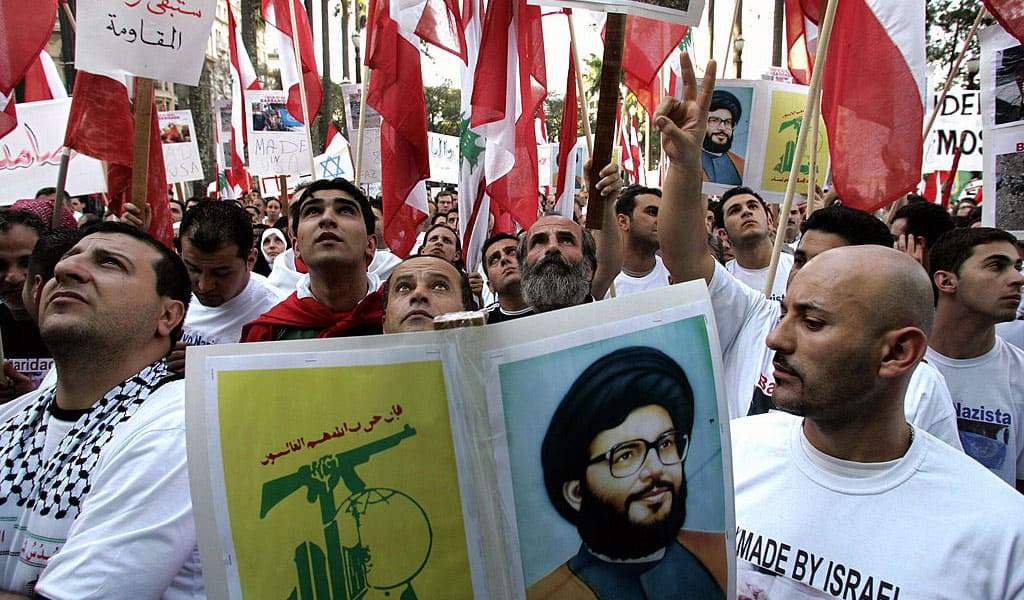Will Iran Use Latin America to Retaliate Against the US?

The Islamic Republic of Iran has steadily built a presence in Latin America, but the regime’s most recent strategy includes diversifying its presence throughout a range of non-Islamic groups in the region.
When the United States order a strike early this year, killing the head of the Islamic Revolutionary Guard’s Corps’ Quds Force, Qassem Suleimani, the world looked to see how Iran would respond. Iran’s immediate retaliation was to launch 15 ballistic missiles at American forces in Iraq — an attack with zero American casualties.
Many speculated this was a show of resistance for the immediate aftermath, and that Iran (being long-game players) would be plotting a far more complex revenge plot.
As Foreign Policy reports, Suleimani’s successor, Esmail Qaani, “inherits a deep proxy network of capable actors such as Hezbollah in far-flung places, raising the specter of a retaliatory attack against the U.S. interests or U.S. allies abroad.”
One of those places is Latin America.
The in-depth reporting by Foreign Policy rewinds history to show how Iran responded to Israel’s 1992 assassination of Hezbollah co-founder Abbas Musawi as a measure for how they might now respond to Suleimani’s killing:
“Iran responded to that strike by targeting Israeli interests in Latin America, leveraging its Hezbollah proxy network to plan and execute bombings in Buenos Aires in both 1992 and, allegedly, in 1994. These strikes were massive and devastating—killing over 100 civilians and wounding several hundred more. In the wake of the Suleimani killing, Iran may look abroad to seek revenge and could do so again in Latin America, where Hezbollah maintains deep roots.”
On January 10, 2020, the Los Angeles Times ran an article exploring the same question. In a piece titled “Could Iran — and Hezbollah —strike in Latin America?”
The article points to the 2018 stabbing of then-candidate Jair Bolsonaro by a man with a history of mental health issues. It was suspected that the attack was planned by Hezbollah, a Lebanese terror organization that often acts as a proxy for Iran. Though often not discussed with the same drama and emphasis as ISIS and Al-Qaeda, Hezbollah is in fact the far more dangerous and the most well-funded terror organization in the world.
As Clarion Project previously reported, Iran’s terror proxy Hezbollah is ramped up south of the U.S. border with growing Lebanese and Syrian Muslim populations in Mexico as well as with cartel drug traffickers whose operatives in Bolivia and Peru have been arrested.
They are also connected to a large financial cash cow in the area called the “Triple Frontier,” the junction between Paraguay, Argentina and Brazil known for drug trafficking and money laundering.
Argentina is also of particular interest to Iran, with both nations aligned on anti-Semitism. Hezbollah has already shown that it has a long-term interest in establishing funding streams in the country through black market arms sales, narcotics, pirated goods, human trafficking, counterfeiting and money laundering — with all of these operations funding terror activities.Iran’s Latin American roots have only grown deeper in the last generation.
Foreign Policy offers a detailed report on the range of other groups Iran is also working with in Latin America in:
Argentina: Leftist ideologies drawn to Iran’s anti-imperialism narrative. The Quebracho group, specifically, offers additional proxy options for sabotage and violence.Venezuela: High-level political operatives shield and facilitate corruption through immigration fraud and abuse of diplomatic immunity to smuggle gold between Tehran and CaracasThe Triple Frontier: Where the Clan Barakat group shows Hezbollah’s ties to organized crime networks deeper in Latin America
Hezbollah (and Iran) might also launch an attack on U.S. soil through activating its “sleeper cells” that it has smuggled into the U.S. through its Latin American pipeline and connections to Mexican drug cartels.
As Adam Kredo reported in 2018 for The Washington Free Beacon:
Hezbollah is probably the most experienced and most professional terrorist organization in the world, even more so than ISIS and Al-QaedaIran is as good or better at explosive devices than ISISIran is better at developing assassination cellsIran can outsource attacks to Hezbollah, which is known for keeping a tight and secure operation
What is clear is that Iran is focused on the long-game because it knows it cannot challenge the United States in a conventional battlefield. On the other hand, Americans often prefer quick wins and vivid rhetoric echoing championship.
As we move beyond 2020, re-shaped in a post-COVID-19 world, it would be an advantage to better understand our vulnerabilities and reframe what long-term investments are needed to be an equal competitor in an asymmetrical war. We cannot always wage the war we want; we also have to be responsive to the war we’re in.
Photo: Supporters of Hezbollah in Sao Paulo, Brazil, demonstrate against Israel in 2006 (Photo: MAURICIO LIMA/AFP via Getty Images)




